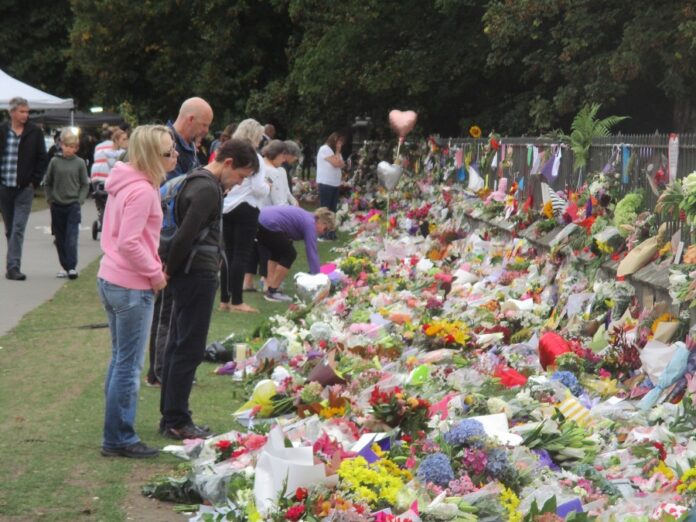With increased accessibility to extremist ideologies, millennials lack the critical thinking skills to discern fake news
According to extensive polling and surveys, millennials possess great confidence in their ability to think critically. Recent research, however, undermines this millennial way of thinking, and recent events have exemplified the underlying danger of this deluded sense of confidence.
The internet has afforded us instant and unprecedented access to information. With the rise of social media, users are presented with information that has been filtered through an algorithm providing each individual with information consistent with their personal (and preconceived) beliefs and interests. These algorithms supply people with information affirming these preexisting beliefs, rather than challenging them. In this way, an individual with anti-immigrant viewpoints, for example, is given information that confirms their sentiments, even if that information is false, misleading or skewed.
Even more problematic is the rate at which fake news is able to spread through social media, spanning countries and continents. By preying on misled fears and beliefs, fake news and skewed news have successfully sown discord and violence in society.
The consequences range from spreading silly conspiracy theories to skewing an election and stoking ethnic violence. Facebook, a well-known platform for fake news, was used by Myanmar’s military personnel to incite fear and hatred of the country’s Rohingya Muslim population, culminating in genocide and mass migration. By the time Facebook had acknowledged its failure to act, 700,000 Rohingya had already fled the country.
Fake news would be benign if not for the lack of critical thinking skills present among millennials — and their dependence on social media as a news source exacerbates the problem. A study conducted by MindEdge testing critical thinking skills found that, of young professionals aged 19 to 30, only 24 percent of participants were able to answer eight of nine questions correctly — even after expressing confidence in their critical thinking skills — and 44 percent could not correctly answer more than five of these questions.
This is dangerous because 67 percent of Americans get “at least some of their news” from social media. When presented with fake news, those users likely accept it as fact, proceeding to share and spread that false information to friends and strangers.
Extremists have found a safe haven on the web to share and organize with like-minded people and prey on unfounded fears, allowing them to fester in the most egregious forms. The most recent example of this played out in the Christchurch mosque shootings in New Zealand. The terrorist responsible exchanged and shared his views on 8Chan, wrote a manifesto riddled with popular culture references and memes, and live-streamed the massacre, which was instantaneously shared and re-shared far faster than content moderators could take it down. His manifesto was rife with anti-Muslim writings and is available online, and even White House advisor Kellyanne Conway encouraged people to read it.
Every facet of the terrorist’s actions was intended to garner publicity and incite similar violence. On March 25, a California mosque was set on fire in what has been called a “clear homage” to the New Zealand terrorist attack, with graffiti sprayed on the walls citing the Christchurch shootings. Thankfully no one was injured, but the stream of violence leaves no group safe from a future attack.
Viewpoints that would normally be discarded as conspiracy theories are now afforded legitimacy with the rise of social media and the ability for those with similar grievances to connect, exchange and establish groups. The inherent problem within social media lies in the fact that uninformed and informed opinions are on the same plane. Unlike legitimate news sources, social media news goes unfiltered, unchecked, and ultimately becomes dangerous, and even lethal, when both informed and uninformed “news” are regarded as equally factual.
Beyond holding social media platforms accountable and ensuring content moderators fulfill their duties, the real long-term and effective solution is to foster critical thinking within the education system. Education must nurture young minds to analyze the information they’re given rather than accept it unquestioningly. Terrorism is a war of ideologies, and the best way to defeat an evil one is to expose it for what it is: false.
If platforms like Facebook continually fail to act, then it’s time they be regulated. Individuals can be sued for defamation, yet a platform with an international reach that knowingly allows non-curated and incendiary information to circulate globally is not held to the same standard. Facebook should not have more immunity than a guy who falsely screams “fire” in a theater.
Written by: Hanadi Jordan — hajordan@ucdavis.edu
Disclaimer: The views and opinions expressed by individual columnists belong to the columnists alone and do not necessarily indicate the views and opinions held by The California Aggie.






I kind of get the idea that the authors idea of “extremism” is anyone who doesn’t agree with her intersectional leftist ideology.